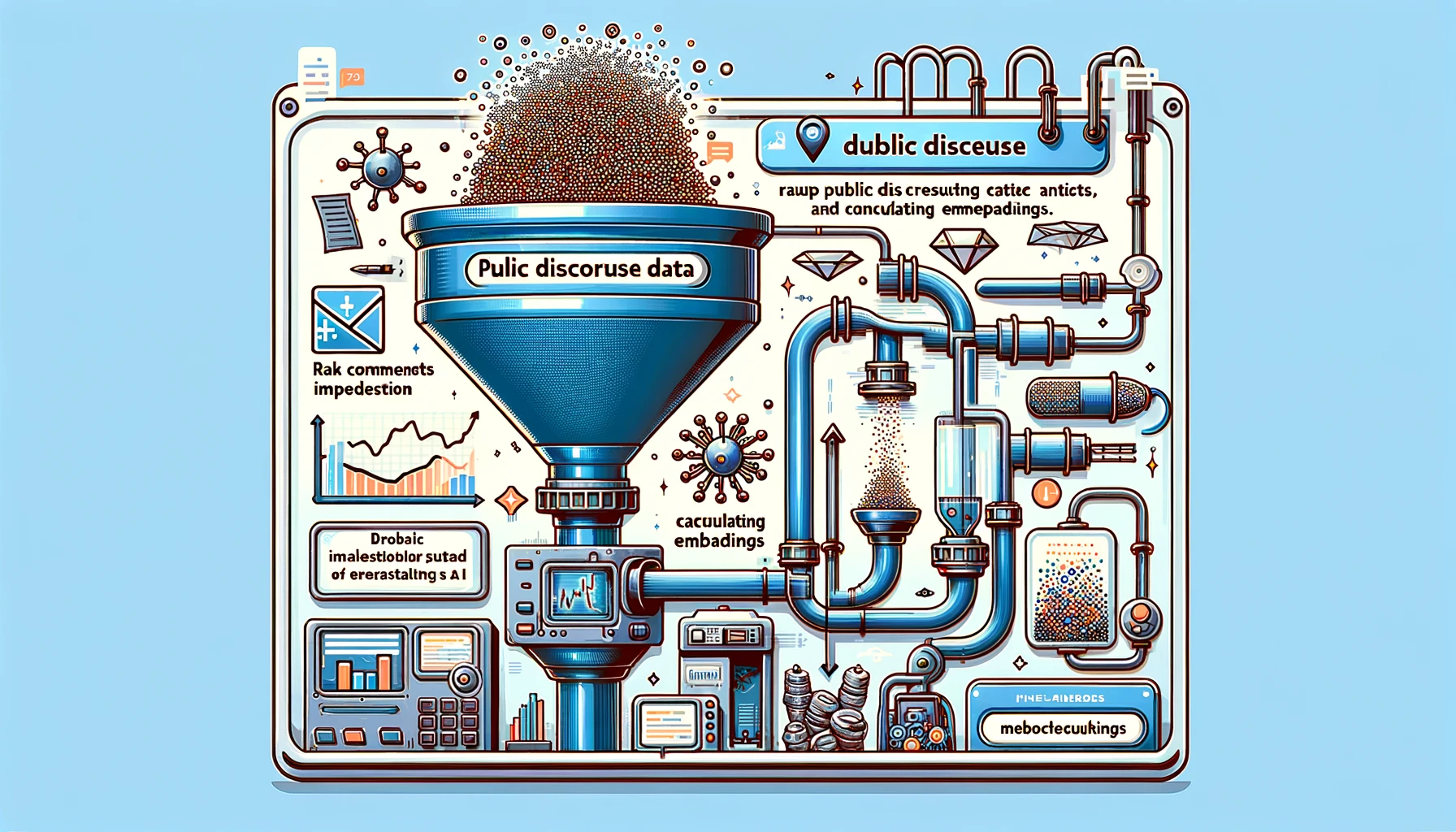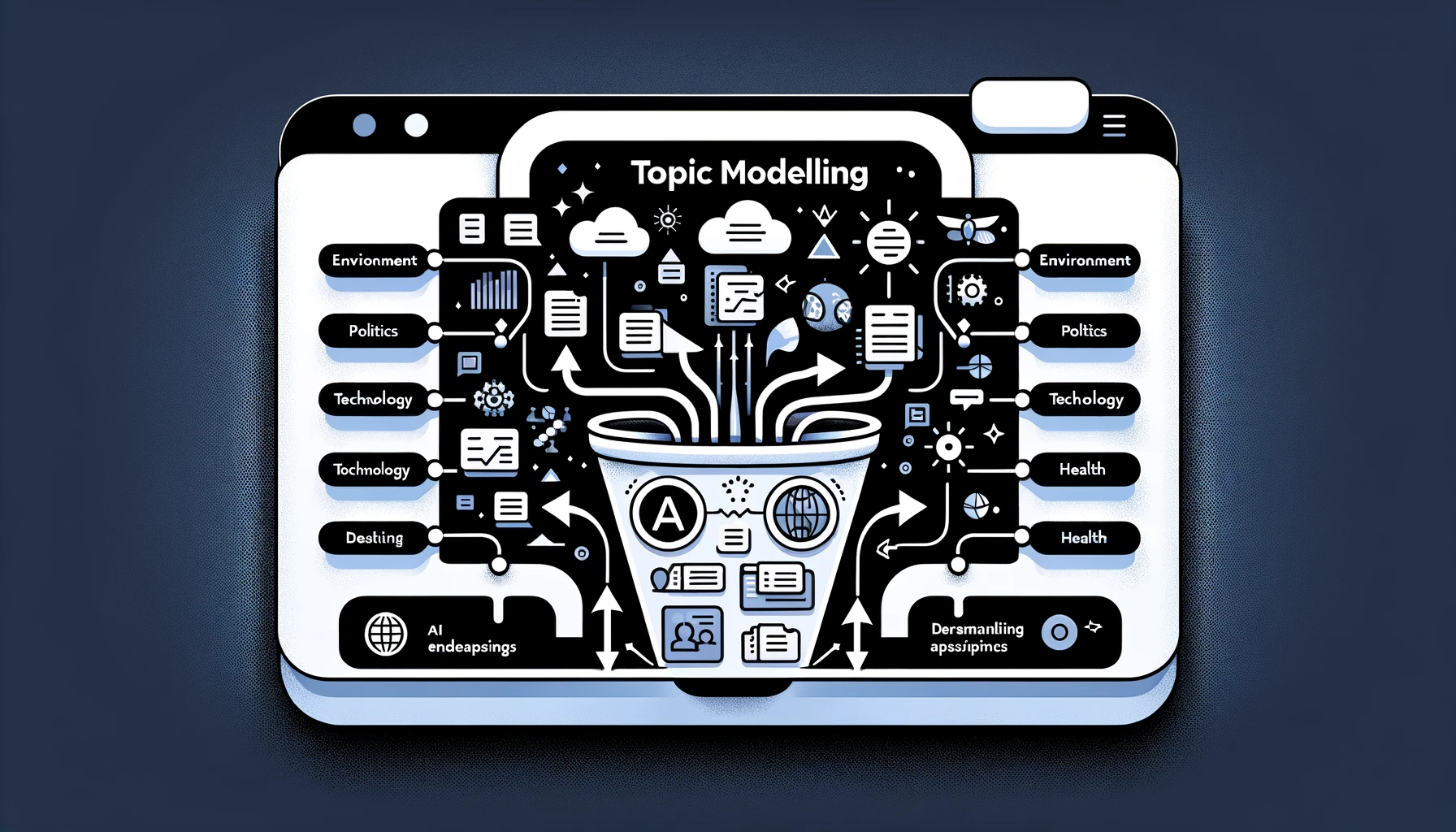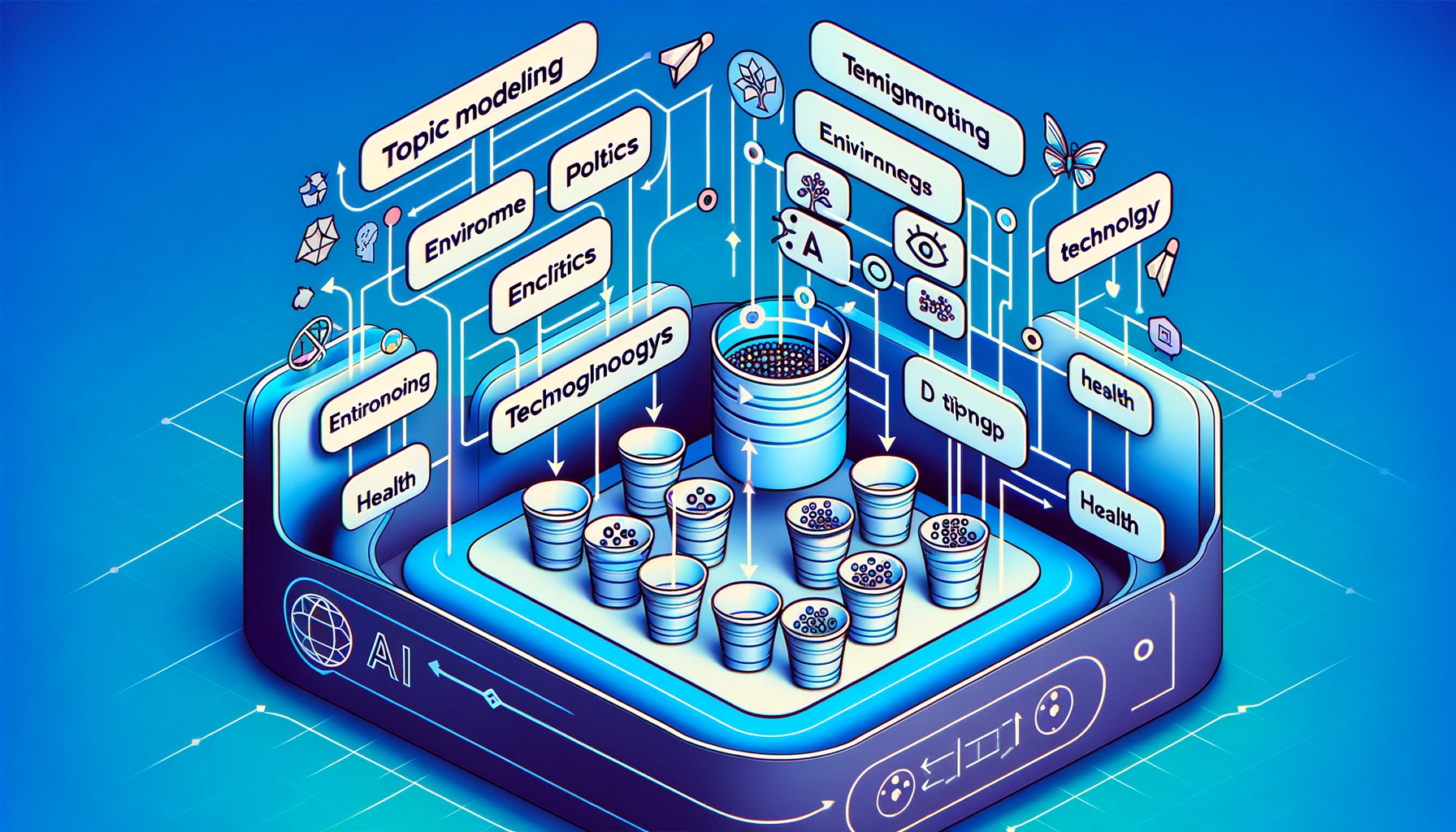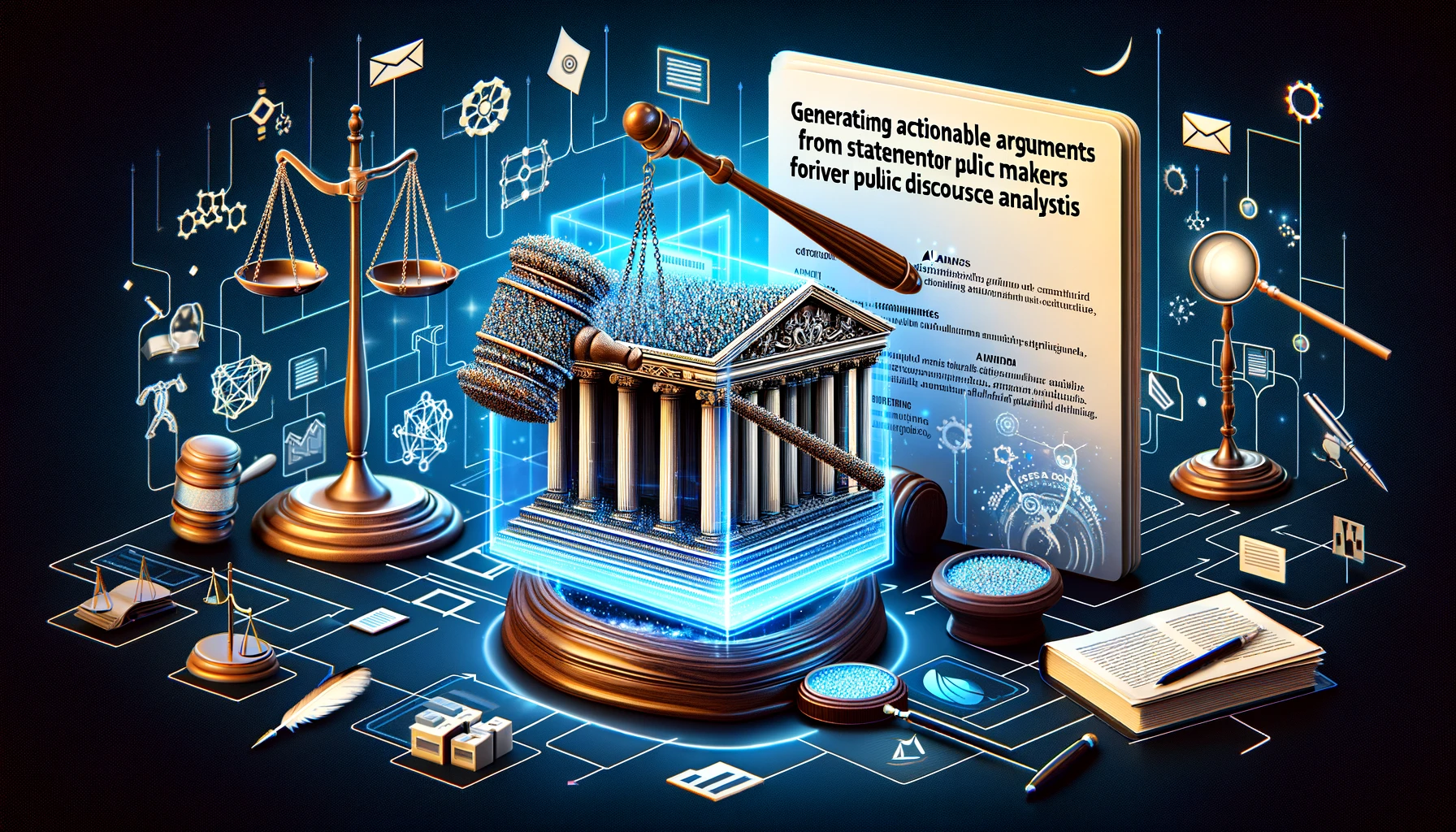---
title: "Methodology: Content Processing Pipeline"
---
flowchart LR
DataIngestion ==> Embeddings
DataIngestion ==> CommentModeration
Embeddings ==> TopicModeling
TopicModeling ==> Labeling
TopicModeling ==> Structure
CommentModeration ==> TopicModeling
Structure & Labeling ==> Tree
Tree == Agreement Scoring ==> Insights
DataIngestion[Data Ingestion]
CommentModeration[Comment \n Moderation]
Labeling[Topic Label \n Generation]
TopicModeling[Topic Modeling]
Structure[Insight \n Generation]
Tree[Argument Mapping]
Insights[Actionable Insights]
Argument Mapping to Guide Policy Decisions
How can LLMs enable us to ingest massive streams of unstructured information, incorporate diverse perspectives and distill them into actionable insights that align with public opinion?
This study focuses specifically on data from publicly hosted online discourse platforms such as Polis or Kialo that are geared towards specific topics or events.
Publications
- Moderating Democratic Discourse with LLMs, SBP-BRiMS (September 2024)
- Using LLMs to Structure and Visualize Policy Discourse, DemocrAI workshop at IJCAI 2024 (August 2024)
- Advancing Policy Insights: Opinion Data Analysis and Discourse Structuring Using LLMs. Graduate Thesis and Dissertation 2023-2024. University of Central Florida. (May 2024)
Overall Research Questions
- How effectively can language models structure and enable access to large amounts of opinion data?
This involves investigating how these technologies can be leveraged for topic modeling, measuring consensus or discord among opinions, and generating executive summaries and visualizations of the opinion landscape.
- What metrics and insights can we generate from embeddings?
Text embeddings are numerical representations of text produced by transformer models that capture semantic meaning of textual data. This research leverages to cluster statements and opinions, identify outliers, and facilitate topic modeling.
- What are the inherent risks associated with the deployment of language models?
This work aims to address concerns related to data bias, ethical implications, the potential for misinformation, and the overall integrity of AI-driven systems in shaping public policy. While language models offer transformative capabilities in analyzing vast, unstructured datasets, they also carry the potential to skew public discourse or influence policy decisions in unintended ways. Addressing these risks is crucial for the responsible and equitable use of AI in democratic deliberation.








